Derivative of Gaussian |
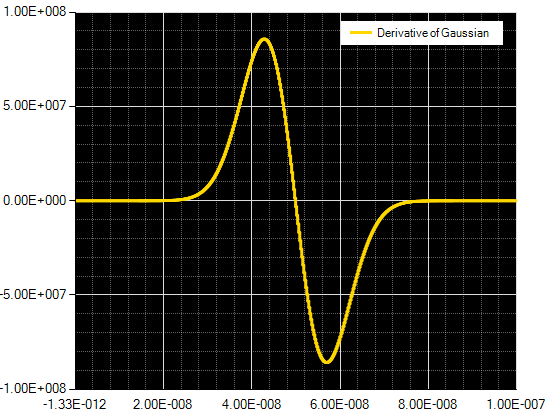
The Derivative of Gaussian waveform is defined by the equation:

where A is the amplitude, t0is the time to peak, and α controls the width at half peak.
There are two ways to create a Derivative of Gaussian signal:
In the simulation tree, right click Sources or Signals and select Create Signal. Choose
 Derivative of Gaussian.
Derivative of Gaussian.
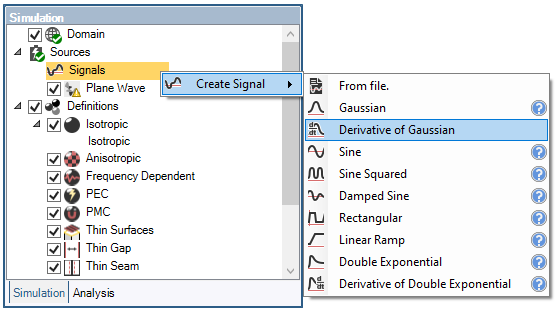
Within the signals panel under the EMA3D tab in the ribbon, select the Derivative of Gaussian waveform
 .
.
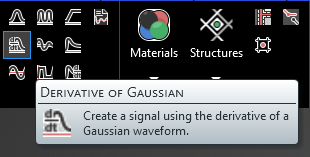
After adding a signal, the signal edit window will appear with a graph of the signal and various parameters that can be adjusted. The signal can be edited immediately or at a later time by right clicking the signal name in the Simulation Tree and selecting edit in the pop-up menu. These parameters are described in the table at the end of this section. Additionally, the frequency spectrum of the signal can be inspected by clicking FFT in the top left of the window.
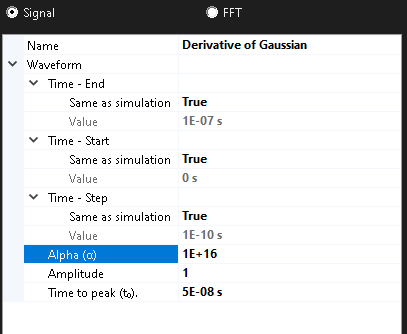
If you do not wish to edit the signal close out of the signal window using the small x in the signal tab beneath the model window
 .
.
Both of the above options will place the newly-created signal in the Simulation Tree under Signals within the Sources node.
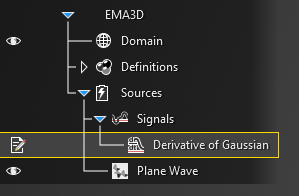
To add the signal to a source, click and hold the signal within the Signals node in the Simulation Tree and then drag and drop it on the source (e.g., on the plane wave). The signal should then be nested beneath the corresponding source.
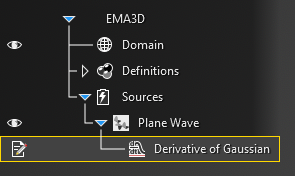
Entry | Meaning |
|---|---|
Name | The display name of the signal |
Time - End [s] | The simulation time the signal turns off. The default end time matches the simulation end time. Time - End can be changed only if the field Same as simulation is set to False |
Time - Start [s] | The simulation time the signal turns on. The default start time matches the simulation start time. Time - Start can be changed only if the field Same as simulation is set to False |
Time - Step [s] | The sample rate of the signal. The default step time matches the simulation step time. Time - Step can be changed only if the field Same as simulation is set to False |
Alpha (α) | The waveform alpha parameter |
Amplitude (A) | The waveform amplitude |
Time to peak (t0) [s] | Time at which waveform reaches peak amplitude |
Other Resources
EMA3D - © 2025 EMA, Inc. Unauthorized use, distribution, or duplication is prohibited.